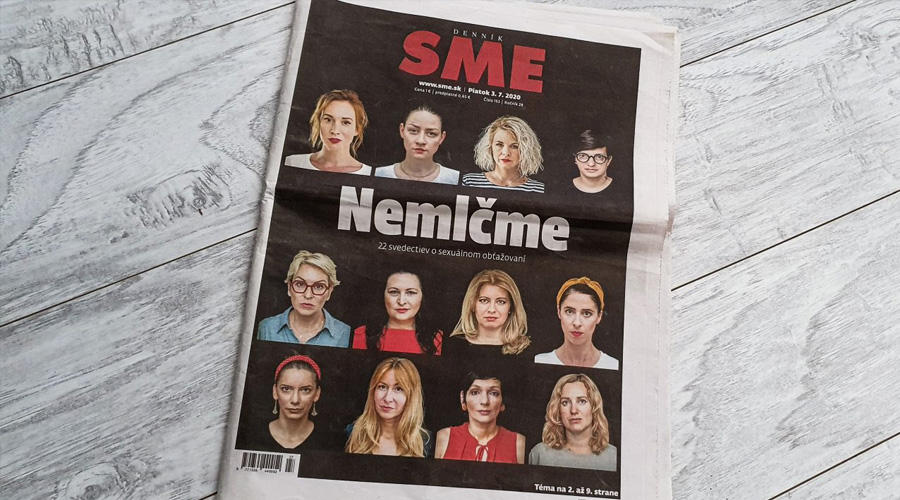



We are in the middle of a journey,” Beata Balogova, editor-in-chief of SME newspaper, described the state of women’s rights in Slovakia, as if interpreting the popular meme quote from the TV series Chernobyl: “not great, not terrible”.
Balogova was responding to an incident in June of sexual harassment involving one of the most popular Slovak actors, Maros Kramar, during an entertainment TV show Inkognito on TV JOJ, when he inappropriately touched a make-up artist moving around him, igniting a dormant conversation in this Central European country about the issue of women’s rights.
The influential SME daily took the debate a step further when it published a powerful issue on July 3, headlined “Let’s not be silent”, in which it featured stories from 22 women about harassment, sexual violence and the culture of silence they have experienced. One of these women was Slovak President Zuzana Caputova, who said she had “encountered inappropriate behaviour many times,” and described a meeting when she was working as a lawyer that ended with a whispered sexual proposition from a client.
While Slovakia has discussed the rights and safety of women in general, one researcher decided to look specifically at women in the media, who are most often the ones standing on the side of victims of sexual harassment and violence.
“In our media space, we have fantastic female journalists dealing with difficult investigative stories, corruption or mafia. A lot of them are fearless when they fight for the good of others, but they are not able to fight for themselves,” said Simona Mikusova, a Slovak TV journalist and scholar at Virginia Commonwealth University, who this month published a study that showed over 60% of women in the Slovak media have had their own experience of sexual harassment.